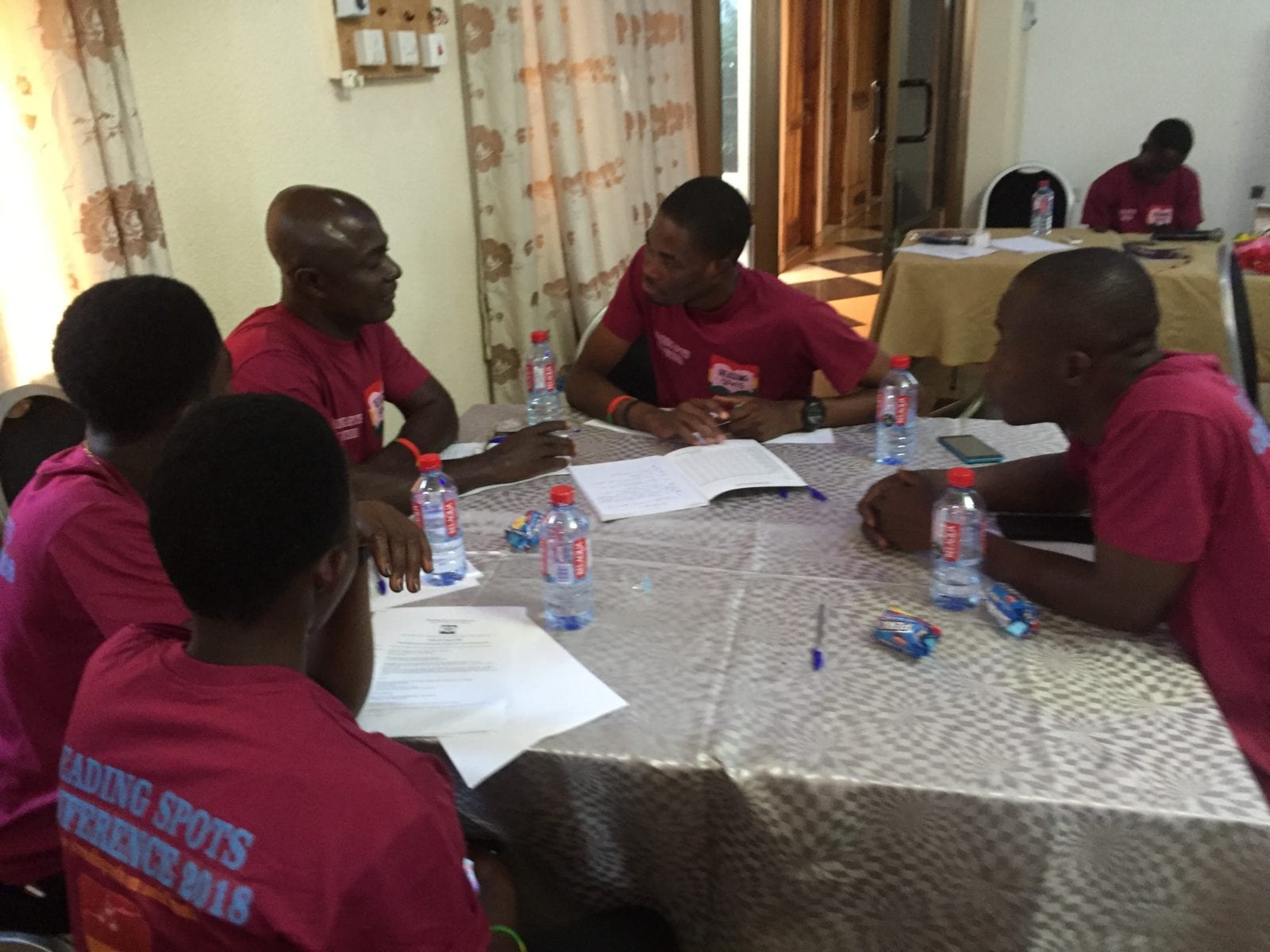How can we create a strong volunteer community in each of our areas?
We can:
- Ensure that we employ effective communication methods. Each community should set up a separate WhatsApp platform to communicate what support is needed and when and create a sense of team. Consider ways to develop the skill-set of volunteers through this feed (e.g. by sharing articles/ideas).
- Explain the nature of volunteer work and its benefits. Identify both the motivation of an individual for completing volunteer work, and understand their particular skill-set, engaging a wide cross-section of professionals (e.g. teachers, policemen, nurses) who can share different knowledge and areas of expertise.
- Create a wide range of clubs and societies linked to the library that enable volunteers to share their areas of interest, and give them autonomy over individual projects (with support).
- Ensure that roles are given to people depending on their interest and skill-set and ensuring that each individuals understands that their role is integral to the success of the whole project.
- Create a formal volunteer system whereby certificates are given out for a length of service to create a sense of achievement and belonging (Reading Spots will look into doing this centrally, but you could also organise it locally).
- Motivate others through your own passion and commitment to the cause – people look to you as a role model. You must have patience and genuine love for the work. This requires self-motivation – the whole Reading Spots volunteer network are here to provide support.
- Alert people to the impact that can be made through their volunteer work (both with respect to the community, other individuals, and the development of their own skill-set).
- A democratic system should be created whereby each volunteers feels that their view counts in the organisation of the whole.

How can we best publicise the library?
- Engage with multiple bodies in the community: churches, mosques, schools, community gatherings. We should organise community meetings to raise awareness, supported by community leaders. Letters should be sent to all local authorise and organisations.
- Create a highly effective use of social media (could you set up a Facebook page for each community library to increase awareness and share news and promote the work of the library?) Contact other local media (e.g. magazines or newsletters) to gain publicity. Make posters and fliers advertising the library; taking photos in the library, perhaps against murals which can be painted onto the walls.
- Share the Reading Spots jingle, and be interviewed on local radio stations.
- Visit the information centre with detailed and accurate information about the library (emphasising its resources, services, activities, and that it is free to attend).
- The community must be educated as to the benefits that engagement in the project can bring.
- Organise durbars/ education-focused events to showcase the work of the library.
- Visit schools and asking to speak to pupils class by class about the library. Encourage schools to make full use of the facilities and alert teachers to different possibilities of resource use.
- Organise competitions (e.g. football, drama or spelling bees). This could be inter-school. Holding competitions in between children who use the library. Creating additional motivation for children to attend (e.g. certificates, small rewards)
- Encourage those who have benefited to share their experiences.
- Create a strong library committee consisting of representatives from all local bodies – e.g. schools, PTAs, District Assemblies, traditional leaders etc.
- Ensure that the services, activities, and resources of the library are outstanding (and culturally relevant) and publicising this.
- The managers of the library should be competent and friendly, with a clear sense of passion for education and inclusive/welcoming to all.
- Create further sign-posts to show the community where the library is situated.
- Home visits can be made to explain the benefits of attending the library.
- Engage both children and parents as ambassadors of the library.
- Continue to extend the use of Reading Spots t-shirts or creating t-shirts locally for the specific project.
- We can organise public exhibitions by kids or indeed adults alongside other public education events to be attended by officials.

How can we fundraise for our project locally?
- Distribute envelopes (with information in) to gain pledges from individuals and companies in the community.
- Setup a business attached to the library (e.g. book shop, bakery, food stall etc)
- Contact the local district assembly and MP (and consistently updating them on impact and needs)
- Organise performances (e.g. via the drama club) and other events and charge a small sum for entry, also fundraising during the event.
- Ask all local durbars to give a proportion of their fundraising to the library.
- Create an alumni network of ‘Reading Spots’ beneficiaries and asking for financial support.
- Alert people to the possibility of hiring the space for a small sum of money (particularly relevant for larger projects).
- Write to local companies (perhaps in exchange for advertising) and also ask churches and mosques for their support.
- Organise a fundraising custom or agreement linked to religious festivals.
- Create a short video on the work of the project to potential sponsors. This is the wider Reading Spots video: https://www.youtube.com/watch?v=l5ptJ6jqq-A
All ideas were created by the Reading Spots volunteers during workshop sessions at the first Reading Spots conference held in Techiman in August 2018 which brought together 63 volunteers from 15 Reading Spots projects across 7 regions of Ghana.
#dreamreadlead
Follow @readingspots on Twitter and Facebook




